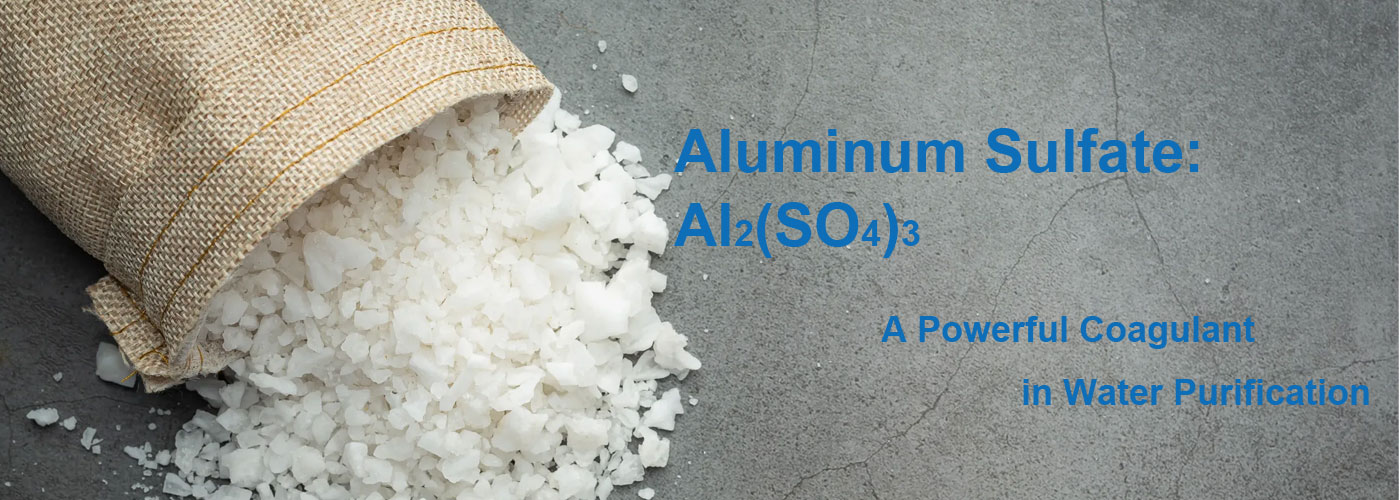Coagulation and flocculation are the cornerstones of water treatment in the quest for clear water. This powerful process is guided by the superior properties of aluminum sulfate, which transforms turbid, contaminated water into a crystal clear source.
Aluminum sulfate, often called alum, is the unsung hero of water treatment. It is a salt with the molecular formula Al2(SO4)3. It is soluble in water and is mainly used as a coagulant in drinking water purification and wastewater treatment plants, as well as in paper making.
How does alum work in a swimming pool
Aluminum sulfate hydrolyzes to form strongly positively charged complex species in water, and particulate matter in solution is negatively charged. Over the course of several hours, the alum species attract the suspended particles and decrease the charge density of the suspended particles, thus, these particles can combined to large and heavy floc until it slowly sinks to the bottom of the pool. It works best with balanced pool water and water temperatures of at least 70 degrees centigrade.
How to use alum as a Coagulant in swimming pools
1. Skims, vacuums and brushes pool to remove large debris.
2. Balance pool pH, alkalinity, calcium hardness, free chlorine and cyanuric acid levels by our swimming pool test strips.
3. The conventional dosage of aluminum sulfate used as a flocculant in swimming pools is 20-50 mg/L. After dosing, the pool should be kept circulating for 2-8 hours, then the pump should be turned off and left to stand for 12-24 hours. If the effect is not achieved, repeat the process.
4. Place porous valve in recirculation, run pump for 2 hours and scrub the pool.
5. Shut off pump for 12-24 hours until alum settles to bottom of pool.
6. Place orifice valve on waste material and vacuum settled alum into waste material.
Aluminum sulfate can also be used in many other areas, and we will briefly describe below.
Dyed Fabrics
One of the uses for aluminum sulfate is dyeing and printing on fabric. When dissolved in large amounts of water with a neutral or slightly alkaline pH, the compound produces a slime known as aluminum hydroxide. This mucilage helps the dye to adhere to the cloth fibers through the water insolubility of the dye. Aluminum sulfate thus acts as a dye “fixative,” meaning that it binds to the molecular structure of the dye and the fabric so that the dye does not run when the fabric is wet.
Paper
Aluminum sulfate is used in papermaking. Aluminum sulfate helps to size the paper. In this process, it combines with rosin soap to alter the paper’s absorbency, and thus its ink-absorbing properties. Aluminum sulfate produces acidic conditions, while synthetic sizing agents produce acid-free paper that does not readily decompose.
Medical Applications
Aluminum sulfate has several practical uses in the medical field. It is mainly used as a coagulant for minor cuts and abrasions and as a deodorant (due to its antimicrobial properties). The compound also adsorbs and precipitates protein antigens in solution, and the resulting precipitate enhances vaccine immunogenicity by facilitating the slow release of antigens from the vaccine reservoirs formed at the site of inoculation. In addition, solutions containing 5% to 10% have been used as topical applications for ulcers and to block foul-smelling secretions from mucous surfaces. Aluminum sulfate is present in materials used in the pharmaceutical industry. For example, it is used in the preparation of aluminum acetate ear drops.
If you need a reliable Aluminum Sulfate Supplier, Yuncang will be your best choice. Welcome to inquire!
Post time: Jun-03-2025


